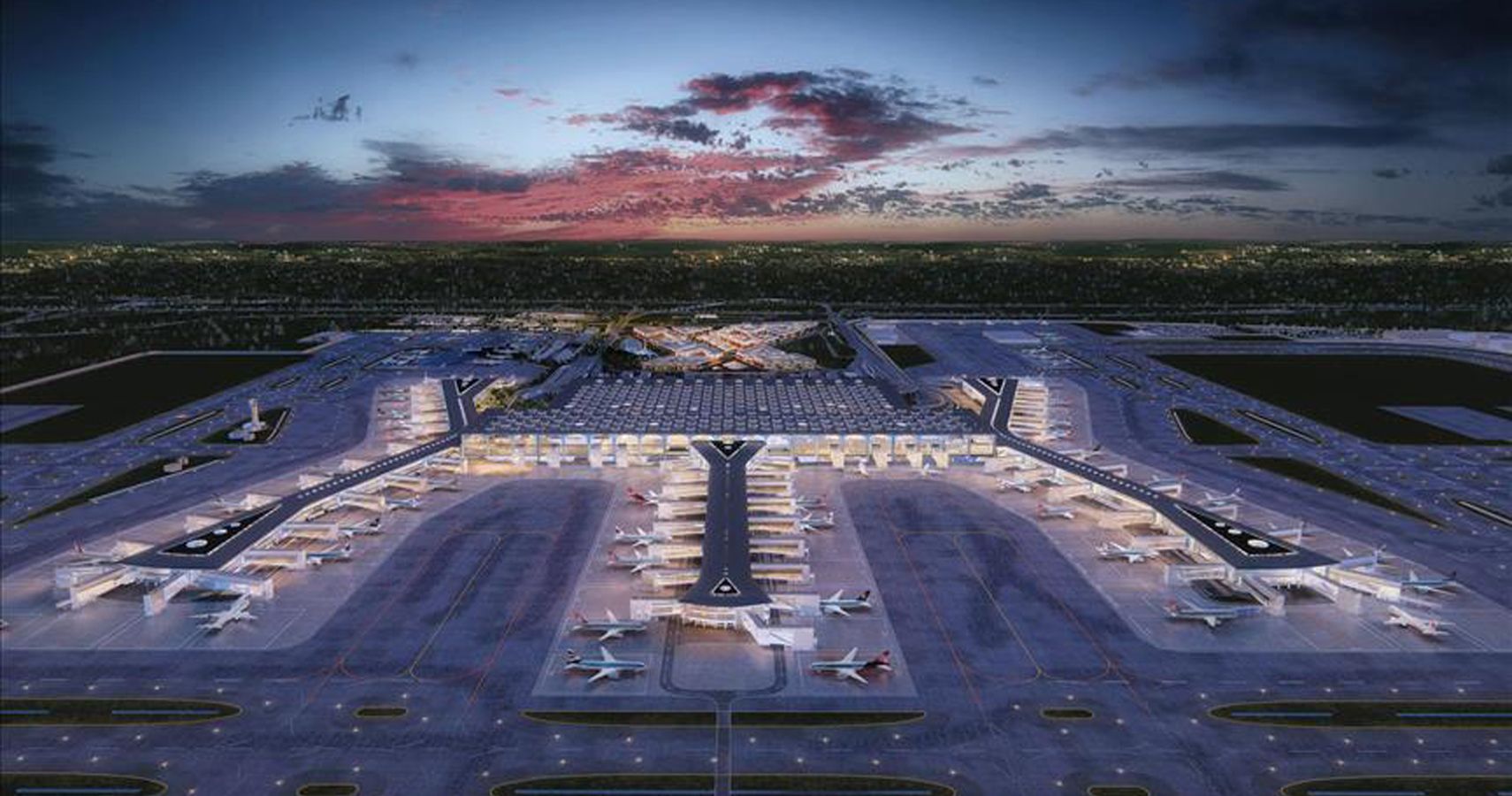Turkey solidified its position as one of the world's most critical aviation hubs on Monday, October 29th, with the official opening of the Istanbul Airport, which is touted to be the largest airport on the planet. It was officially opened by the country's president, Recep Tayyip Erdogan, on the 95th anniversary of Turkey becoming a republic.
Erdogan declared that Instanbul Airport now has the status of being the "most important transit location on the north-south, east-west axes, connecting 60 countries and $20 trillion economies." He added that the hub will help advance Turkey's involvement in economic globalization, despite recent trends leaning towards isolationism elsewhere in the world.
The airport isn't that busy at the moment, hosting only a few weekly flights. But before the end of 2018, the rest of the arrival and departure itinerary will be permanently diverted from Ataturk International Airport, also in Istanbul. It's expected that after a year of operation, Istanbul Airport will handle 90 million passengers annually. That would make it the third busiest in the world, succeeded only by Beijing, which annually services 96 million, and Atlanta, which facilitates 104 million.
In a decade, projections are expected to see the facility hosting 200 million people as well as up to 500 planes using six runways. That amount of traffic would be nearly double what Atlanta's Hartsfield-Jackson Airport can handle.
PREVIOUSLY: HURRICANE MICHAEL FORCES COUPLE TO MARRY AT AIRPORT
In terms of property size, Istanbul might not be the largest, depending on how current statistics on the subject are interpreted. Once completed, the airport will occupy roughly 19,000 acres. That's slightly more than half the size of Denver International Airport, which has a whopping 36,000 acres.
Even larger is Saudi Arabia's King Faud International Airport, which boasts a property size of 191,000 acres, larger than the neighboring island country of Bahrain. But even then, only 9,000 acres of that land are actually used for airport service.
But Erdogan might not be too concerned with the dynamics concerning Istanbul Airport, save for the possibility that it could potentially generate $30.65 billion in revenue to government coffers.
That kind of cash could go a long way towards the labor force responsible for building the complex, although worker issues have plagued construction since the first shovelful of sod was turned. Strikes have been commonplace with laborers complaining about working conditions from lack of safety to unpaid salaries. Since construction, 31 workers have been arrested for protesting, while 38 people have died in accidents on the job.
READ NEXT: SHANGHAI AIRPORT INTRODUCES FACIAL RECOGNITION CHECK-IN


